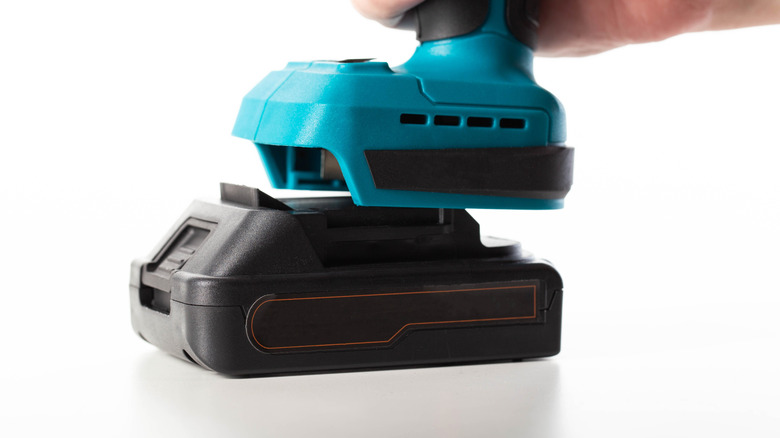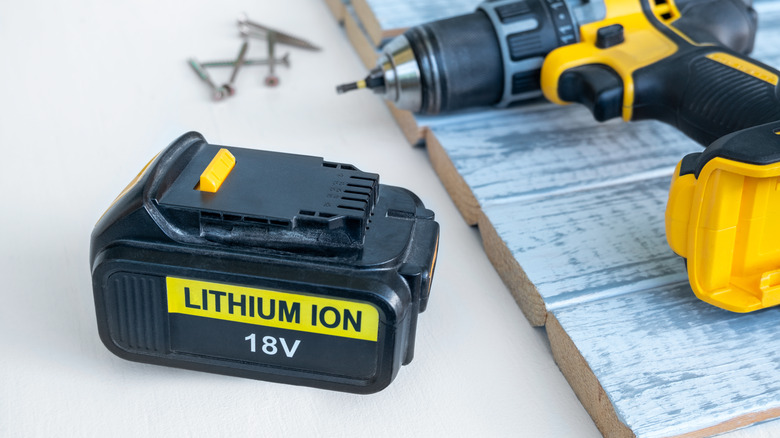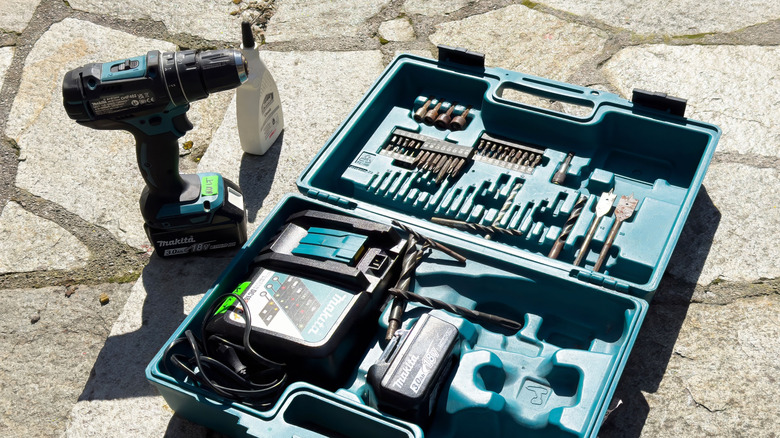Should You Charge Power Tool Batteries Before Storing Them?
In the past, many projects would drag on because workers would get tired from repetitive hand movements. Apart from delays and bloated budgets, these movements also put workers at risk for various injuries. Thankfully, we already live in a time in which there are power tools designed to optimize effort. In addition, power tools make projects more accessible to people who would have previously needed to hire help.
Depending on what you need, there are power tools designed for everyone, including casual homeowners, artists, and renovation professionals, whether it's multi-functional drills to saws that can cut all kinds of surface. Among this portfolio of tools, there is also a growing number of cordless power tools, which rely on high-powered batteries to get the job done. With some cordless tools costing hundreds of dollars, it's no wonder why many of us are always looking for ways to make sure they last as long as possible. One critical component that these have tools have that we typically need to pay attention to is the battery.
In many cases, power tool brands offer multiple battery systems that can support varying power requirements. Because they are typically interchangeable, you can move them around different tools. With this, it's a great way to save money on individual purchases, as well as space in your garage. However, it's important to store power tool batteries properly, especially if you're not planning to use them for a while. But, how much charge is good for long term battery storage?
How much charge should you leave in your power tool batteries
Depending on the power tool manufacturer, they will have their own recommended procedures for storing the batteries that can be unique to their battery systems. For this reason, there's no one specific guideline that applies to all power tools, except of course making sure you remove it from any tools or chargers before hiding it away.
For example, DeWalt recommends fully charging a power battery if you plan to not use it for up to half a year. On the other hand, INGCO says a partial charge that hovers around 50% is actually the more optimal battery charge level for storage. While not as specific, Ryobi also mentions that it thinks a partially charged battery is also best-suited for storage to minimize capacity loss. For Stihl power tool batteries, the company claims they can stay safely stored for up to two years, as long as you leave it within optimal storage range (40-60%) that is visualized by its two green LEDs.
However, while the actual recommend charge may vary based on the manufacturer, there is a common denominator: Avoid fully discharging it. If you want to extend the lifespan of your power tool batteries, INGCO cautions that a fully discharged battery can chip at its lifespan. Meanwhile, Stihl cautions that older power tool batteries are more prone to faster discharging than the newer models, so if yours still uses nickel-cadmium, you may want to check up on it more often.
Tips for power tool battery storage
Apart from making sure your power tool battery isn't fully discharged, power tool manufacturers also share other helpful tips for storing their batteries safely. In general, manufacturers will list both the operating temperature and storage temperature, which you can use as a guide for your battery storage. For the most part, many of them recommend that you store your power tool battery in a cool, dry location.
For example, Milwaukee shares in its Lithium-ion Battery Pack Safety Manual that you shouldn't store batteries in areas at risk of temperatures going above 120 degrees Fahrenheit. Apart from direct sunlight, Milwaukee mentions that storing batteries inside closed areas like vehicles can increase your risks. Unfortunately, lithium batteries are more prone to catching fire due to things like thermal runways. To avoid capacity loss, Milwaukee recommends placing it in dry area at room temperature. Not to mention, it cautions that battery chargers should be given the same kind of care as their batteries.
In addition, other power tool brands like DeWalt are also particular about routine maintenance, which include cleaning batteries and keeping them away from liquids, like oil. In some cases, if you notice battery leakages, damages, or an inability to retain charge, DeWalt recommends disposing of it immediately and properly. That said, all power tool batteries will degrade with regular use, even after good storage practices. For some brands, like Ryobi, it's expected that they'll need to be replaced at around the three year mark.


